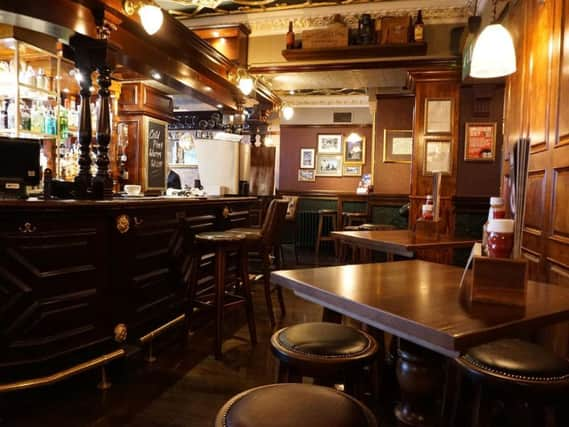Number of small pubs and bars on the increase for first time in 15 years


The figures from the Office for National Statistics showed that there were 7,000 more jobs in the sector in 2019 compared with 2018, an increase of 1.6 per cent. Meanwhile, pub and bar enterprises now employ more people serving food than people working behind the bar.
The increase is the first since before the financial crash of 2008.
Advertisement
Hide AdAdvertisement
Hide AdThe industry has struggled in a fast-changing landscape in recent years, with the introduction of the smoking ban, which was brought in in Scotland in 2006, hitting pubs hard, while changing health trends have seen people reduce the amount of alcohol they consume. As a result, pubs have been forced to diversify into offering other services, such as food.
A year ago, it was estimated that an average of 18 pubs in Scotland were closing a week. In Edinburgh, the new figures show that there are around 55 fewer pubs than in 2001, but 20 per cent more people work in the sector. In the Highlands, the number of pubs has risen by 24 per cent, while East Dunbartonshire has also seen a rise of 20 per cent.
In Falkirk, however, the number fell by 40 per cent.Glasgow saw a decrease of 13 per cent.
The report said: "The UK pubs and bars sector may be bouncing back after years of net closures. The sector has responded by diversifying its offer, evidently in the area of food service.
"This year’s data have shown a net increase in small pubs and bars for the first time in more than 15 years and the highest levels of real turnover since the end of the financial crisis of 2007 to 2008."
It added: The tendency in pub and bar enterprises to employ more people serving food may be a reaction to changing consumer habits. There is a long-term trend towards people spending more of their household income on eating out and less on drinking out."
As well as an increase in the number of pubs and bars in the UK, turnover in the sector increased by £847m - or 3.8 per cent - in 2017, the most recent data, after inflation is considered. Real turnover in the latest year of data is at its highest level since the financial crisis of 2007 to 2008 ended.
Bruce MacGregor, owner of MacGregor’s bar in Inverness, which opened two years ago, pointed to the “Outlander effect” on tourism in the area.
Advertisement
Hide AdAdvertisement
Hide AdHe said: “Inverness is very popular with tourists at the moment, the Outlander effect has had a lot to do with that and we have had a huge number of Americans here in recent years. We have put a lot of extra things in that you wouldn’t normally expect in a bar such as whisky tasting show. We also have a lot of music. Because there is so much music and culture in the Highlands, that has become very important and most bars have music, a lot of it traditional.
“Making sure bars survive all year, you have to make sure the food is good. The Highlands has become very good at sourcing good quality ingredients for menus, which has become an important selling point.”
He added: “Fifteen years ago, there were perhaps not as many bars in Inverness as in some of the other biogger Scottish cities, so to a certain extent, it might be a case of Inverness catching up.”
Nik Antona, national chairman of the Campaign for Real Ale, said: “We cautiously welcome the trend these figures suggest, that small pubs and bars are beginning to ‘bounce back’ after years of decline and figures have increased between 2018-2019 nationally.
“Unfortunately pubs continue to close across the country, particularly in small or rural communities. This means the loss of the social, cultural and economic benefits that come with a well-run local."
Robert Rawlinson, chief executive of live sport streaming service for pubs, Screach, said: "For an industry that’s centuries old, the pace of change in the pub sector is accelerating fast.
“Since the start of the millennium, household spending on alcoholic drinks in pubs and bars has fallen by a third. Tough competition from supermarkets has steadily eaten into pubs’ drink sales."